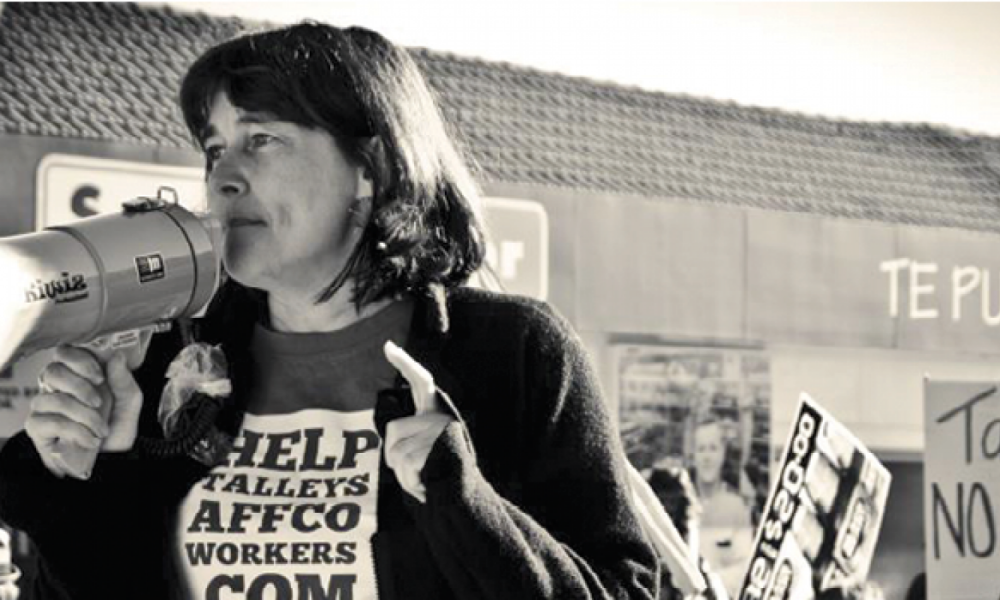Review by Fleur Fitzsimons
 You don’t need to have known former CTU President Helen Kelly to find this book an inspiring read about the power of union organising.
You don’t need to have known former CTU President Helen Kelly to find this book an inspiring read about the power of union organising.
It is a handbook for activists about the how and why of running effective campaigns, from the thankless work behind the scene to taking on large powerful groups like Federated Farmers, and having a vision of what needs to change.
But most compellingly for union audiences, it tells the story of the impact of the far-right, radical Employment Contracts Act imposed by the National Government in 1991 and the fightback which has been happening since.
Helen’s life from 1991 onwards is really about rebuilding the dignity of working people and trying to fix the broken New Zealand deal, which she described as:
"It can’t be the deal that you can work Monday to Friday or longer and spend Saturday at the foodbank. Work has to make a greater economic and social contribution than that, and it is not a deal that anyone I know has signed up to.”
The book documents the casualties of this broken deal that Helen demanded justice for.
Casualties like Charles Finlay who had been working in forestry for 27 years, had three children and in 2013 was earning $16 per hour with a contract that stated he work as much overtime as the employer required at the standard rate of $16 per hour.
Charles was killed in 2013, the sixth worker to be killed in forestry that year alone. Helen took on Finlay’s case and became a special part of his family, being known as “Aunty Helen Kelly”.
Charles Finlay was one of many forestry workers killed at work that Helen demanded answers for. The forestry industry saw Helen as the enemy and accused her of exploiting bereaved families, but the book shows the genuine affection between her and these families who were desperate for justice for their men.
But the book does more than tell the personal stories of workers and the impact of Helen’s high-profile advocacy on their behalf, it contains lessons for us all.
The lessons are about the importance of always seeking genuine dignity at work, of human rights, of a union movement that takes on injustice and builds solidarity through organising and campaigning.
So next time you are putting up a PSA poster or encouraging a new staff member to join the union, remember Helen Kelly, remember the power of working people and the power of solidarity, because without it we will never fix the broken deal.
To be in to win a copy of the book email editor@psa.org.nz to tell us what year the Employment Contracts Act was introduced.
Main photo credit: Simon Oosterman

